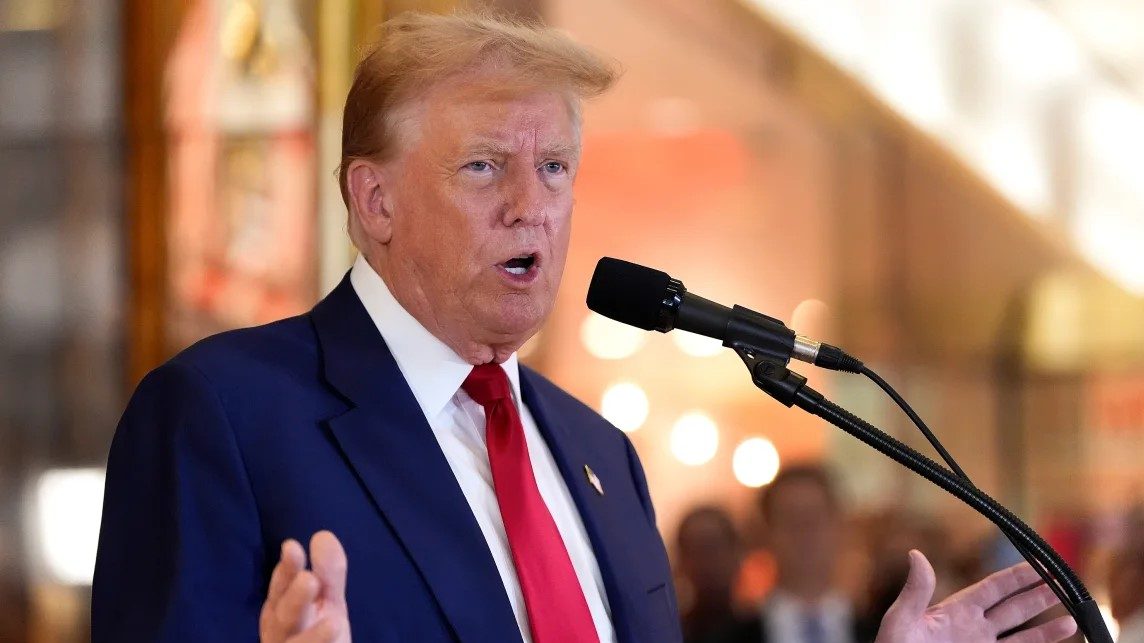Trump's Legal Battles and Political Aspirations: A Deep Dive
Former President Donald Trump is at the center of a political and legal firestorm as he faces unprecedented criminal charges. Recently found guilty on 34 felony counts of falsifying business records in the Stormy Daniels affair, Trump continues to suggest prosecuting his political opponents if re-elected. In an interview with Newsmax, he sharply criticized the path taken by the current administration and implied that future presidents might follow suit, creating a controversial precedent.
With multiple criminal charges looming over him, including federal accusations of conspiring to overturn the 2020 election results and illegally retaining confidential documents, Trump's legal troubles are far from over. His sentencing for the felony counts has been scheduled for July 11. Despite the conviction, Trump remains adamant that he has done nothing wrong and believes he could be imprisoned, though his lawyers argue that his age, lack of criminal record, and community contributions could mitigate any prison sentence.
Judge Juan Merchan, who is expected to at least consider probation or community service over a prison sentence, will deliver Trump's sentence. Controversy surrounds the potential imprisonment of Trump, with the Republican National Committee preparing for scenarios where Trump may have to address the Republican National Convention from jail if sentenced.
Political Implications and Constitutional Questions
Trump's conviction marks a significant moment in U.S. political history, becoming the first former president to face such a situation. Interestingly, a criminal conviction does not preclude Trump from running in the upcoming November 5 election against Joe Biden. The U.S. Constitution only requires presidential candidates to be over 35 years old, born in the U.S., and reside in the country for more than fourteen years.
The broader implications of Trump's legal battles include the possibility of him being re-elected while dealing with ongoing criminal proceedings. In such a scenario, Trump could use presidential powers to order the federal prosecutions to be dropped or potentially pardon himself, though this is heavily debated among jurists. Notably, this self-grace would not apply to the Stormy Daniels case or any state-level prosecutions, such as those ongoing in Georgia.
Future Prospects and What Lies Ahead
As Trump's legal proceedings extend, the repercussions on the political landscape could be monumental. The prospect of Trump receiving a prison sentence while potentially regaining the presidency adds layers of complexity, challenging the norms of U.S. governance. Observers note that an ultra-polarized America could face increased chaos and violence if such unprecedented events unfold.
For Trump, the 'real verdict' might come on November 5, where a victory at the polls could significantly alter the trajectory of his legal battles. His allies, party members, and legal team are ramping up preparations for every foreseeable outcome, illustrating how Trump's conviction and future actions will shape the nation's political discourse.
- If found guilty after re-election, Trump's legal strategy could involve leveraging executive power to manage federal charges. This would not shield him from state-level indictments, thus keeping the Stormy Daniels and Georgia cases active.
- Legal scholars remain divided on whether a sitting president can pardon themselves. This contentious debate underscores the complex intersections of law and politics in modern U.S. history.
- With the Republican National Convention slated for mid-July, the RNC is considering various contingency plans should Trump be sentenced to prison before the event. This unprecedented situation could alter traditional campaign dynamics.
- The July 11 sentencing date stands crucial as it determines Trump's immediate future. As these events unfold, they offer profound insights into the evolving dynamics of U.S. law and its interaction with political power.






